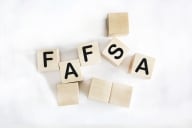You have /5 articles left.
Sign up for a free account or log in.
A lawsuit alleging misleading recruitment by New York Law School was dismissed Wednesday, marking the first ruling in more than a dozen complaints in which students and graduates contend they were duped into enrolling by artificially high employment and salary statistics at law schools across the country. The plaintiffs promised an appeal.
Alexandra Gomez-Jimenez and several fellow plaintiffs said New York Law used fraudulent employment and salary figures in recruitment materials, leading them to believe they were almost assured a lucrative job upon graduation when in fact many of them struggled to find full-time employment.
A state judge, Melvin L. Schweitzer, rejected the plaintiffs’ argument that misleading statistics led them to overvalue their legal education, ruling that New York Law School framed its data accurately and that prospective law students are “sophisticated consumers” capable of analyzing that information.
The New York case is the first to reach a resolution, even if only a temporary one, among several across the country alleging misinformation on the part of law schools. The suits coincide with a downturn in the legal market caused at least in part by the 2008 recession, which has led to a reduction in the number of law school entrance exam takers.
Among the issues in the New York case was whether employment and salary information for positions which don’t require a law degree should be included in statistics presented to students. The plaintiffs said they assumed the employment rates referred only to graduates working full-time in law, while the court ruled nothing in New York Law’s admissions materials said that was the case. The plaintiffs also suggested that the law school misled them by publishing statistics based on relatively small samples, never more than 30 percent. The court disagreed.
"The court does not view these post-graduate employment statistics to be misleading in a material way for a reasonable consumer acting reasonably," the judge wrote. "As to the salary data being misleading because it allegedly was based on a 'deliberately selected' small sample of graduates, the relatively small percentage of responding students was disclosed whenever the salary data included the average salary statistic."
Since the plaintiffs graduated from New York Law, the American Bar Association changed its methods for counting employment from having any job within nine months of graduation to having a job which requires a J.D. The ABA declined to comment on Wednesday's dismissal, but issued a statement saying schools should provide accurate data and that students should understand that data before enrolling.
In its dismissal ruling, Schweitzer was critical of the plaintiffs, suggesting they should have known employment was not assured and that students at higher-ranked law schools tended to receive the best jobs. Out of 146 law schools ranked by U.S. News and World Report this year, New York Law is in a tie for 135th.
“In researching law school options, it also should have come as no surprise to these law school consumers that the most lucrative jobs often are associated with having attended a high ranking law school,” Schweitzer wrote. “It is also difficult for the court to conceive that somehow lost on these plaintiffs is the fact that a goodly number of law school graduates toil (perhaps part-time) in drudgery or have less than hugely successful careers.”
David Anziska, principal in the law firm representing the plaintiffs at New York Law and more than a dozen other law schools, said he was disappointed in Wednesday's decision but expressed optimism that the case will succeed on appeal. He also pledged to file 20 more suits against law schools by late May.
"We fully disagree with the judge’s decision and we can obviously appeal it," Anziska said. "We believe that ultimately the First Department Appellate Division will overturn it, and I would just reiterate that litigation is a long-term process and this is just one step in a long-term process."
Kyle McEntee, executive director of Law School Transparency, a policy organization working to reduce the cost of legal education, worries the court “missed the point.” While prospective law schools students are usually smart, McEntee said they don’t fit the court’s definition of a sophisticated consumer. That’s because the prevailing belief in this country is that a law degree prepares one for a lucrative career. Law School Transparency is not involved in the New York Law case or any other suits filed against law schools.
“This is not a sophisticated group, and though they tend to be very intelligent, for a long time it’s been this culturally imbedded view that law school is a ticket to financial security,” McEntee said. “It’s with this belief that prospective students read and interpret these employment statistics.”
Students at other law schools have made similar claims, and suits are pending at Thomas Jefferson School of Law and Thomas M. Cooley Law School. McEntee said the New York findings could be “instructive” in cases elsewhere, but that it shouldn’t determine the outcome of those suits because they are filed in different states with different laws.
If nothing else, he said, the attention given to the cases in New York and elsewhere have helped further the idea that students and their parents need to be more savvy consumers of legal education.
“They’ve brought the idea that schools aren’t being forthright to the front of discussion,” McEntee said.
New York Law issued a news release Wednesday praising the judgment and defending their practices.
"New York Law School works hard to communicate the realities of the legal job market to current and prospective students," the release said. "We will continue to provide an excellent legal education to our students, and to support our students and graduates as they embark on their professional careers."
Schweitzer acknowledged problems in the current structure of the legal profession and stressed the need to provide students with “the most transparent data of the state of our profession that we can possibly assemble so that they can make the most informed decisions that affect their livelihoods.” He added that suits like the one they dismissed might stress the need for that frank assessment of future lawyers’ career prospects.
“If lawsuits such as this have done nothing else, they have served to focus the attention of all constituents on this current problem facing the legal profession,” Schweitzer wrote. “To the extent law schools are turning out too many graduates for the positions available, market forces will begin to correct themselves, hopefully in short order. But that does not itself excuse our collective responsibility to those who have been unfortunate enough to have been caught in the midst of the maelstrom.”








